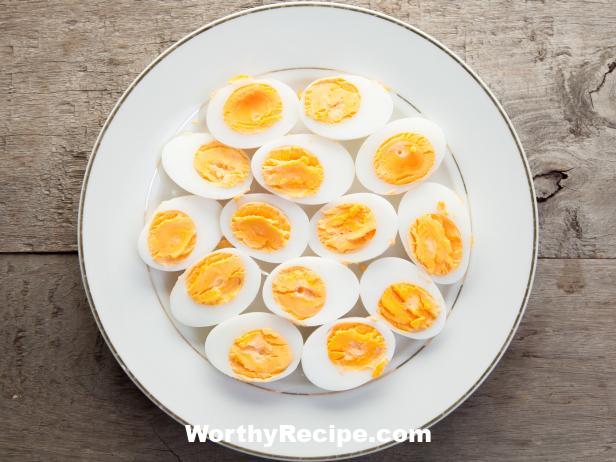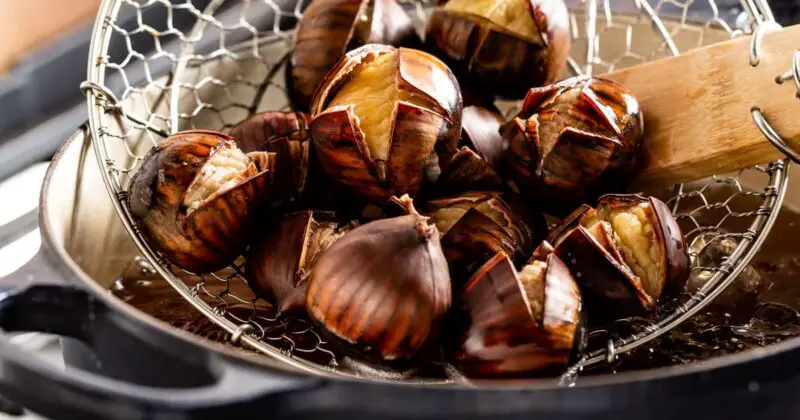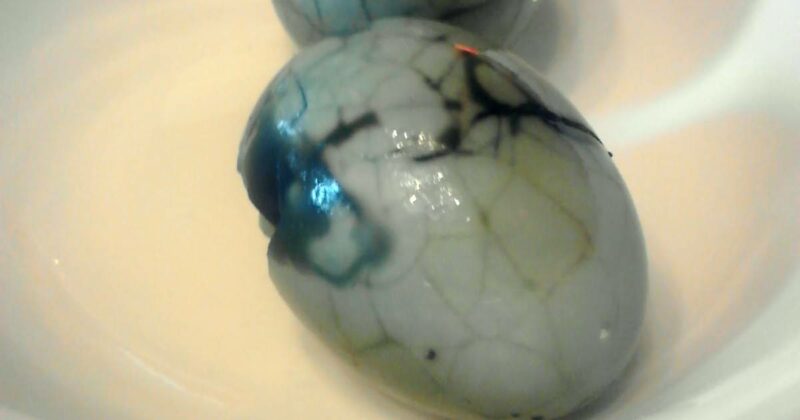Is it Okay to Put Hot Hard Boiled Eggs in the Fridge?
Hard boiled eggs are a popular and versatile food item that can be used in many recipes or as a healthy snack. With their numerous health benefits and high protein content, it’s no wonder why they’re such a staple in many people’s diets. However, one of the biggest questions that come up when dealing with hard boiled eggs is whether it’s okay or not to put hot hard boiled eggs directly into the fridge.
The Importance of Egg Storage
To answer this question, we first need to understand the importance of egg storage. Eggs are susceptible to microbial growth, and bacteria can quickly multiply under certain conditions. Properly storing eggs can help prevent foodborne illnesses caused by harmful pathogens like Salmonella or E. coli.
Egg storage also plays an essential role in preserving egg quality and taste. Exposure to high temperatures can lead to spoilage and deterioration of nutritional content and flavor, which ultimately compromises the safety of consuming them.
The Debate over the Safety of Refrigerating Hot Hard Boiled Eggs
Refrigerating hot hard-boiled eggs remains a topic of debate amongst experts. Some sources say it’s safe to store them in the fridge, while others warn against it.
So, what’s the truth? The answer is a bit more complicated than a simple “yes” or “no.” To determine whether storing hot hard boiled eggs in the refrigerator is safe or not, let’s take a closer look at the science behind egg storage and handling.
The Rules for Safe Egg Handling and Storage
Egg storage should always follow specific guidelines recommended by regulatory agencies like the FDA (Food & Drug Administration) and USDA (U.S Department of Agriculture). These guidelines are designed to ensure the safety and quality of eggs, while also minimizing risks of foodborne illnesses.
One of the most critical factors in egg storage is maintaining proper temperatures. Eggs should be stored at temperatures between 33° and 40° Fahrenheit (0.5° and 4.44° Celsius).
The optimal temperature for eggs varies depending on their age and whether they’re raw or cooked. Fresh eggs can be stored at higher temperatures than older ones. Cooked eggs and egg dishes should always be kept below 40° Fahrenheit to prevent bacterial growth.
Scientific Explanation of How Heat Affects Eggs
Understanding how heat affects eggs can provide insights into why storing hot hard boiled eggs in the refrigerator is not ideal.
Eggs are composed mainly of protein structures. Heating eggs causes these proteins to denature or change shape, which ultimately affects how they behave under different conditions.
The changes in protein structure occur because heating an egg destabilizes its structure, causing molecules to vibrate rapidly and break apart. When the egg cools, some of these broken bonds reform, leading to a more rigid egg structure.
However, if you refrigerate hot hard-boiled eggs too soon after cooking them, you suddenly expose them to drastic temperature variations that can cause thermal shock, leading to structural damage within the egg shell and further destabilizing its protein matrix.
Risks Associated with Refrigerating Hot Hard Boiled Eggs
Refrigerating hot hard-boiled eggs can lead to potential health risks for several reasons:
Bacterial Growth and the Risk of Foodborne Illnesses
- Cold temperatures slow down bacterial growth but don’t stop it entirely.
- If eggs are still hot when placed in the refrigeration, this creates a warm environment that can encourage microbial growth and ultimately lead to food poisoning.
- The optimal temperature for Salmonella growth is between 41° F and 140°F. Storing eggs at this temperature range offers ideal conditions for Salmonella growth.
Spoilage and Deterioration of Egg Quality and Flavor
- Rapid changes in temperature from hot to cold can cause condensation on the shell’s surface, making eggs more susceptible to spoilage and bacterial contamination.
- Studies have shown that refrigerating hot boiled eggs for more than two hours causes them to lose their taste, texture, and shape.
- The longer they’re stored, the greater the chances of the egg leaking rotten odors or even turning color or flavor.
Benefits of Allowing Hard Boiled Eggs to Cool Before Refrigeration
Allowing hard boiled eggs time to cool at room temperature before placing them in the fridge increases their chances of retaining optimal quality and safety over time.
The act of cooling or tempering involves slowly bringing down an object’s temperature (‘tempering’ the object), allowing it to adapt to changes gradually. This gradual cooling process helps stabilize or strengthen protein structures within foods like eggs, preventing possible spoilage or bacterial contamination while maintaining nutritional values and prolonging shelf life.
Factors Affecting Cooling Rates for Hard-Boiled Eggs
Cooling rates differ based on specific factors such as:
Size, Shape, and Shell Thickness Differences in Eggs
- The larger the egg, the more prolonged the cooling time required.
- Eggs with thicker shells take longer to reach full cooling capacity than eggs with thinner shells.
- Different oven types and calibration do influence how best to store different egg sizes and shapes, so you must consider these factors when deciding on a cooling method.
Practical Ways to Cool Down Hot Hard Boiled Eggs Faster
- You can either place your eggs in cold water for 10-15 minutes or put them in an ice bath to quickly cool them down before storing them.
- You might also consider placing them in front of a fan or using a cooling rack if you prefer not to use water.
Alternatives to Refrigeration for Storing Hard Boiled Eggs
Refrigeration is not the only method for storing hard boiled eggs. Here are some alternatives:
Using Salt or Vinegar Solutions as Preservation Methods
- Add salt or vinegar solutions (or both) to room temperature leftover boiled eggs, which will help extend their shelf life by forming an extra protective barrier around the outside of the egg.
- Be aware that adding these substances may change egg flavor and cause discoloration.
Vacuum Sealing Techniques to Extend Shelf Life
- Vacuum sealing is a popular preservation method for many food items, including hard boiled eggs.
- This technique involves removing all air from a sealed container or enclosure, forcing bacteria out of foods and preserving food quality for longer periods.
- Vacuum-sealed hardboiled eggs can last up to five days in the fridge and up to one month in the freezer.
Guidelines for Safe Consumption of Stored Hard Boiled Eggs
Whether boiled eggs are raw or cooked, some essential guidelines must be followed when handling them:
Recommendations on Best Practices for Properly Handling Leftover Boiled Eggs
- Always use a clean set of utensils or tools when handling boiled eggs. Using dirty hands or surfaces can cause an increase in cross-contamination and potential foodborne illnesses.
- Stored cooked eggs in airtight containers or plastic bags that won’t leak or spill onto other foods.
- Label your containers with the date you cooked them so that it’s easy to track how old they are and minimize health risks.
- Discard any leftover eggs that have been left at room temperature for two (2) hours or more, as bacterial counts will have multiplied to unsafe levels beyond this time frame.
Signs of Spoilage or Contamination to Look Out For:
- If you’re unsure whether cooked eggs are still safe to eat, look for signs of spoilage such as an off-color or odor, slimy texture, or discoloration.
- If the eggs give off a sour smell when you crack them open, discard them immediately.
- Never use eggs that have been left out at room temperature for more than two (2) hours or longer.
Conclusion
So, is it okay to put hot hard boiled eggs in the fridge? The answer is NO. Storing hot hard-boiled eggs directly from boiling water into the fridge creates optimal conditions for bacteria growth, leading to foodborne illnesses and impeding the egg’s quality, texture, and flavor over time.
Instead, let your eggs cool down to room temperature or place them in cold water/ice bath before placing them in the fridge or use other preservation methods such as salt or vinegar solutions or vacuum sealing techniques.
By following proper guidelines for egg storage and handling while also tracking built-in timing measures, you can ensure that boiled eggs remain safe and healthy to eat throughout their shelf life.
FAQs:
Q: Can I put hot hard boiled eggs in the fridge?
A: It is not recommended to put hot hard boiled eggs in the fridge, as this can cause condensation, which can lead to bacterial growth and spoilage of the eggs.
Q: How long should I wait before putting hard boiled eggs in the fridge?
A: It is recommended to let hard boiled eggs cool down for at least 2 hours before putting them in the fridge. This will reduce the risk of condensation build-up and bacterial growth.
Q: Is it safe to eat hard boiled eggs that have been left out at room temperature?
A: No, it is not safe to eat hard boiled eggs that have been left out at room temperature for more than 2 hours. This can lead to bacterial growth and potential foodborne illness.
Q: How long can I keep hard boiled eggs in the fridge?
A: Hard boiled eggs can be safely stored in the fridge for up to one week. It is important to keep them in a covered container to prevent contamination from other foods.





